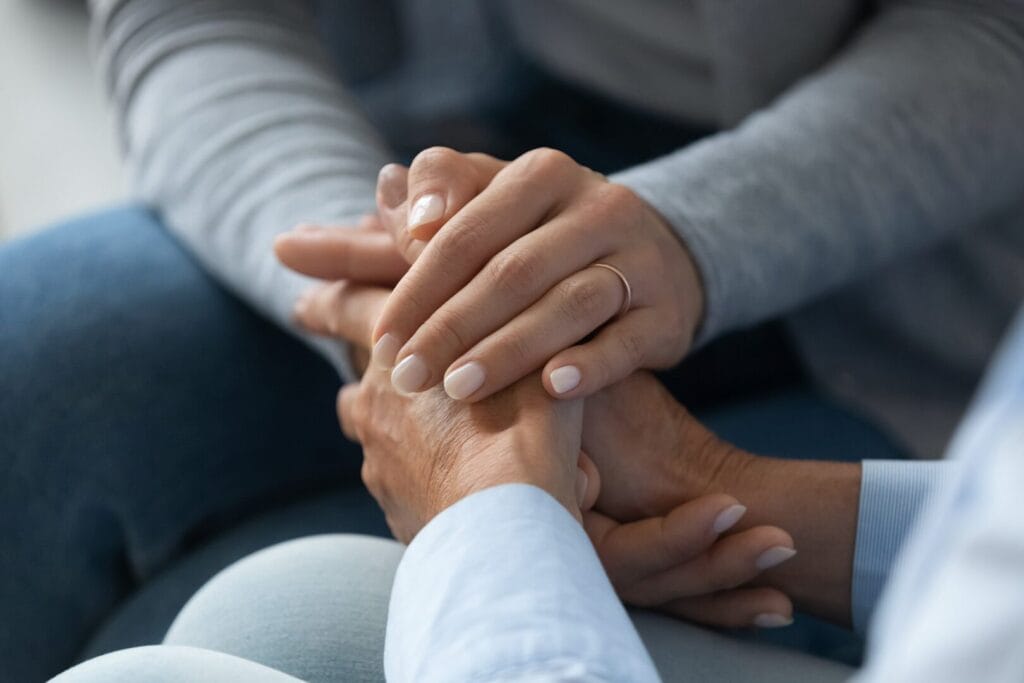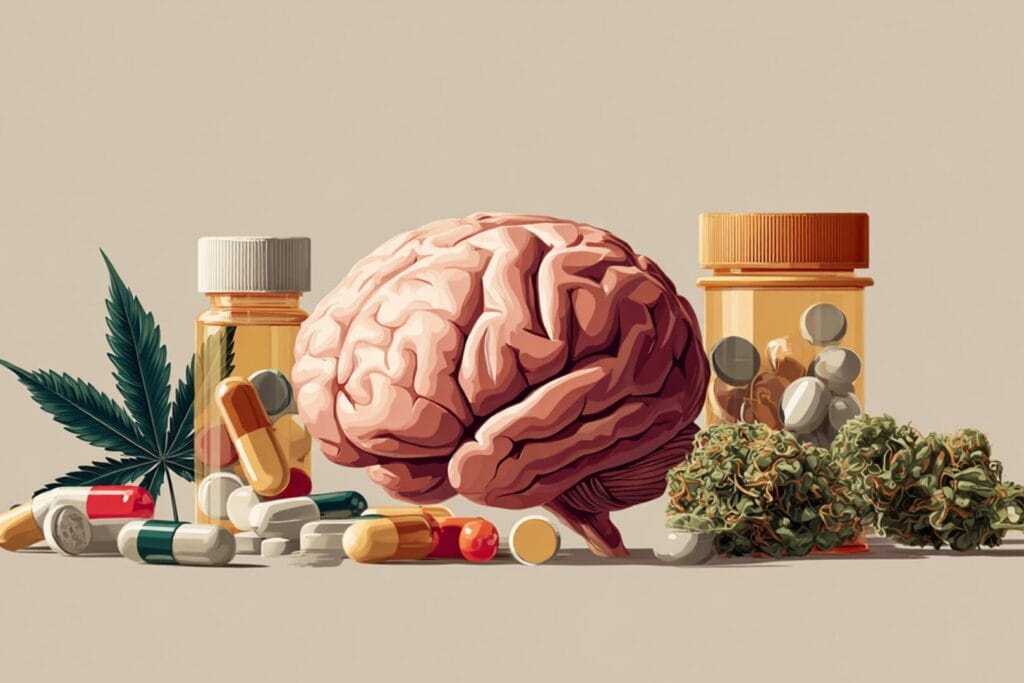Addiction recovery can be a long, winding road, and it’s full of ups and downs. For anyone walking the path, it’s always important to remember that recovery isn’t the same for everyone. Each person’s journey looks a little different, and that’s okay. What works for one person may not work for another, so exploring all the options is important.
One approach that’s made a big impact in the world of addiction recovery is medication-assisted treatment or MAT. It combines the use of medications with support and counseling to help people manage cravings and withdrawal symptoms while working on deeper aspects of their recovery. For many, MAT can be a supportive tool to make the path to sobriety a little more manageable.
What Is Medication-Assisted Treatment (MAT)?
Medication-assisted treatment, or MAT, is a treatment approach combining prescribed medications with counseling and behavioral therapies to help people recover from addiction. It’s a way to give the mind and body the support they need while you’re working through the recovery process.
The medications used in MAT help with managing withdrawal symptoms and reducing cravings so you can focus on healing and then rebuilding your life without the constant pull of addiction.
MAT is commonly used to treat addiction and dependence on opioids like heroin or prescription painkillers and alcohol addiction. Both can be particularly tough to quit on your own.
The idea behind MAT is that it doesn’t just treat the physical aspects of addiction, but also the emotional and psychological sides, giving you a comprehensive recovery plan.
There’s also something important to clear up—MAT isn’t just swapping one addiction for another. The medications prescribed in MAT are carefully monitored by medical professionals and designed to help manage your symptoms, not create new dependencies. It’s a tool that can make recovery more achievable, particularly when combined with therapy and other supports.
How MAT Supports Recovery
One of the toughest parts of addiction recovery is dealing with cravings and withdrawal symptoms, especially in the early stages. The mediations in MAT work by helping to reduce the intensity of cravings and easing the discomfort of withdrawal so it’s easier to focus on the bigger picture of recovery. When your body isn’t constantly fighting against you, it gives you the space to work on healing.
MAT isn’t just about medication—it’s about creating a well-rounded plan to support your recovery from all angles. That’s where counseling and behavioral therapies are relevant. Along with medication, therapy is a key part of MAT because it helps you tackle the emotional and psychological roots of addiction.
Whether you’re learning to cope with triggers, building healthier relationships or working through past traumas, counseling gives you the tools to make long-lasting changes.
MAT approaches recovery by addressing the whole person, including mental, emotional and physical health.
By combining medicine with therapy, MAT helps create a balanced approach that treats both the symptoms and the underlying causes of addiction.
Common Medications Used in MAT
In MAT, there are a few key medicines used to help manage addiction, each working in its own way.
These include:
- Methadone helps reduce cravings and withdrawal symptoms through the activation of the same receptors in the brain that opioids do but in a safer and more controlled way. It stabilizes the body without the intense highs and lows of opioid use.
- Buprenorphine (Suboxone) targets opioid receptors, but unlike methadone, it’s a partial agonist. It controls cravings and withdrawal symptoms but has a lower risk of misuse. Suboxone combines buprenorphine with naloxone to further reduce the risk of abuse.
- Naltrexone doesn’t reduce cravings but instead blocks opioid or alcohol effects, preventing the high and making relapse less tempting. It’s a tool to maintain sobriety after detox.
Dosing must be carefully managed, and ongoing monitoring is crucial to ensure the medicines work safely and effectively.
Benefits of MAT
MAT offers powerful benefits, one of which is that it improves the chances of achieving long-term sobriety.
Another major benefit of MAT is the reduced overdose risk, especially for individuals struggling with opioid addiction. Since medications like methadone and buprenorphine stabilize the body and reduce cravings, they can help prevent dangerous relapses when someone might take more than their body can handle after a period of abstinence.
MAT helps with maintaining sobriety and restoring balance in daily life. When the body is stable, a person can function more fully and create the foundation for a healthier and more stable life.
Debunking MAT Myths
There are a lot of misconceptions floating around about MAT, and it’s important to clear those up.
One of the biggest myths is that MAT is just a shortcut to recovery or a quick fix. MAT can be a long-term solution to support recovery over time. It’s not about masking the problem or avoiding the hard work it takes to heal. It’s about giving the needed stability to tackle recovery head-on and stay on track for the long haul.
Another common myth is using medication in recovery means you’re not really sober, which is entirely untrue. MAT doesn’t mean you’re not in true recovery—it’s just a different path to the same goal. Just like therapy or group support, mediation is a tool that helps people heal.
It’s important to personalize the narrative. There’s no one-size-fits-all approach to overcoming addiction. Every path is unique, and what works for one person may not work for another. MAT is just one of many ways to get there. For many people, it’s the right fit.
The Role of MAT at San Diego Detox
At San Diego Detox, we incorporate medication-assisted treatment as a comprehensive approach to addiction recovery. MAT is paired with personalized counseling and medical support to ensure each person receives needed care on every level—physical, emotional and mental.
Our team works closely with you to create a treatment plan tailored to your needs. We provide ongoing medical supervision to keep you safe and comfortable. We also offer ongoing support in residential treatment so you continue to have the guidance and resources needed for long-term recovery success. Start your recovery today.
FAQs for Medication-Assisted Treatment (MAT)
MAT is a treatment approach that combines FDA-approved medications with counseling and behavioral therapies to help people recover from substance use disorders (such as opioid or alcohol addiction).
MAT medications help reduce withdrawal symptoms and cravings, stabilize brain chemistry, and block the rewarding effects of substances — while therapy supports the emotional and behavioral aspects of recovery, giving a balanced, whole-person approach.
MAT is commonly used to treat opioid use disorder (including dependence on heroin or prescription opioids) and alcohol use disorder.
Therapy — such as counseling, behavioral therapy, or group therapy — is essential in MAT. It helps address the psychological, emotional, and social factors behind addiction, supports long-term sobriety, and builds coping skills for triggers and stress.







